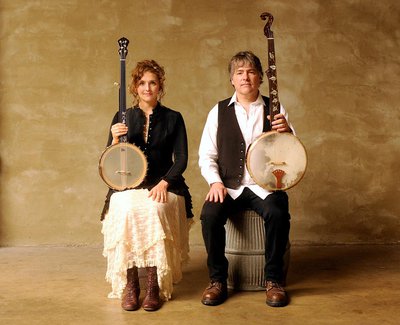
I saw classical music’s future and its name is … Roomful of Teeth? That takeoff on Jon Landau’s famous 1974 encomium to a young Bruce Springsteen might be a little over the top.
But then again, with nearly 30 million Americans singing in choirs and a cappella music a genuine populist phenomenon, an ensemble that combines the universal human instrument — voices — with contemporary artistic ambition might well be a key to bringing new listeners, as well as new singers, to 21st-century classical composers, and vice versa.
Based in New York, Roomful of Teeth (RoT), which performs this Sunday, Jan. 31, at the UO’s Aasen-Hull Hall, has already won a Grammy and made one of its members, composer Caroline Shaw, the youngest-ever Pulitzer winner for her Partita for Eight Voices, written for the group. Admittedly, some of the wild vocal techniques the group has worked diligently to master are beyond the reach of amateurs, and its eight members, including the amazing soprano Esteli Gomez, who’s currently completing a teaching residency at the UO, are spectacularly talented singers.
But by dramatically expanding the musical palette for contemporary composers and showing young singers the seemingly limitless possibilities of the human voice, RoT is opening an exciting new chapter in the music of this century. The group’s UO concert will feature music from its ravishing new album, Render, and more.
Some groundbreaking contemporary classical music is being born here in Oregon, too, much of it among the members of Cascadia Composers. This Saturday, Jan. 30, at First Christian Church (1166 Oak St.), performers including Eugene’s exciting new Delgani String Quartet, pianist Alexander Schwarzkopf, singer Nancy Wood and other accomplished musicians from Eugene and Portland will perform new music by Eugene’s Paul Safar and Schwarzkopf. Joining along are some of Portland’s top composers, including opening act John Berendzen and his “robohorn.” But this isn’t just a performance for the ears. It’s a full multi-sensory extravaganza with projected video art, live cymatics display, special lighting effects and various other multimedia enhancements. In fact, some performances will happen in the dark. It’s a great chance to catch up on the state of the art in homegrown modern music created by our own fellow Oregonians.
Along with hosting RoT, the UO is also bringing Seattle guitarist Michael Partington to Beall Hall this Saturday, Jan. 30, to play music by Piazzolla, Albania, Portland composer Bryan Johanson and more. On Feb. 6, the UO’s Aasen-Hull Hall is hosting Beta Collide, the new music ensemble led by UO faculty members Brian McWhorter and Toby Koenigsberg, in crazy arrangements of this year’s Grammy music nominees. UO students are also producing one of the great Baroque operas, Gluck’s Orfeo and Eurydice, the tragic Orpheus myth, Jan. 29 and 31, at LCC’s Ragozzino Hall. Earlier on Feb. 6, First United Methodist Church (1376 Olive), brings Russian pianist Andrei Andreev to play Romantic classics by Beethoven, Chopin, Schubert and Rachmaninov.
A couple of fine Oregon jazz musicians come to town Jan. 30 — though you can only catch one of them, as the shows conflict. At the intimate Broadway House, Portland pianist-drummer-trumpeter-composer George Colligan, who made a sterling reputation in New York jazz circles before taking a faculty position at Portland State University, returns with his trio to play originals and jazz standards. Meanwhile, over at The Jazz Station, you can hear Oregon sax master Tom Bergeron’s Brasil Band, augmented by three guests: his old partner, New York jazz drummer Art Lillard, pianist Dan Gaynor and trombonist Keller Coker, along with singer Rosi Bergeron and bassist Page Hundemer.
Another musical family, banjo masters Bela Fleck and Abigail Washburn, perform duets on Feb. 10 at The Shedd. Fleck’s incomparable skill, 15 Grammies and wide range of musical explorations, along with Washburn’s singing and songwriting — not to mention their debut album’s varied styles (from Dixieland to bluegrass to British folk to originals) and their profusion of different sounding banjos — promise a show that’s more than just pickin’ and grinnin’, although there’ll be plenty of both.